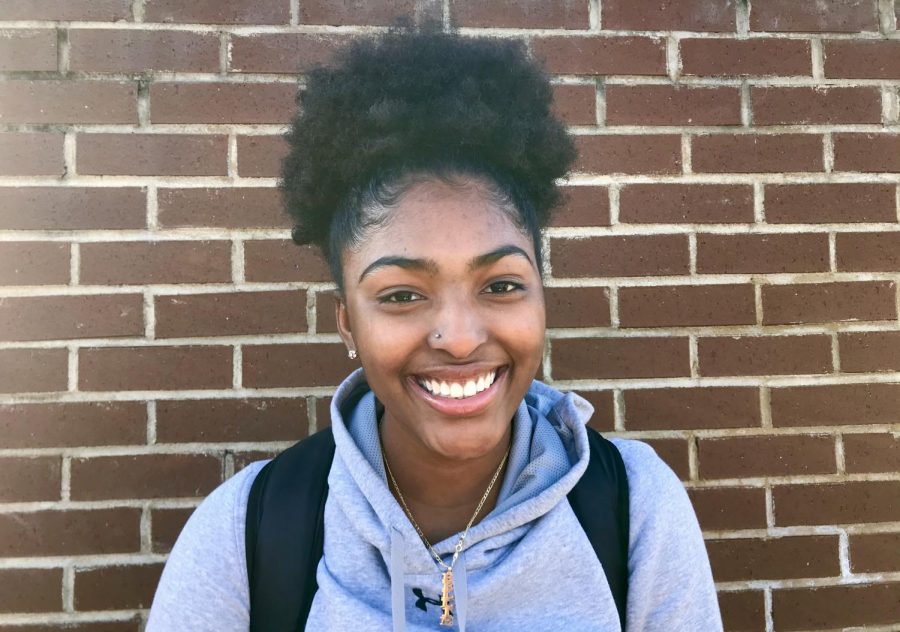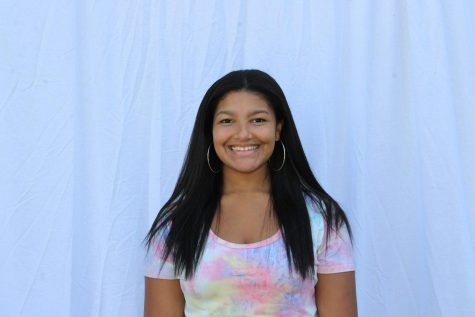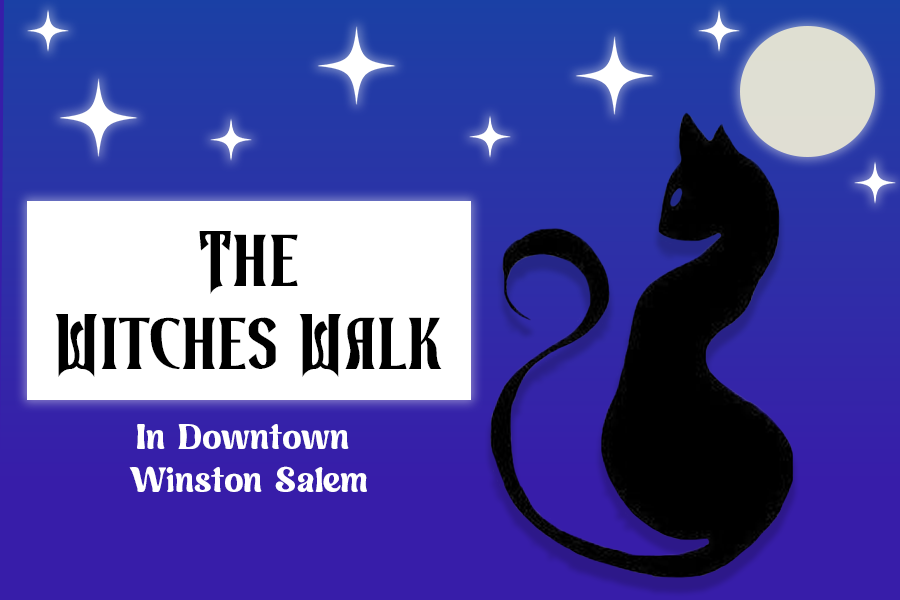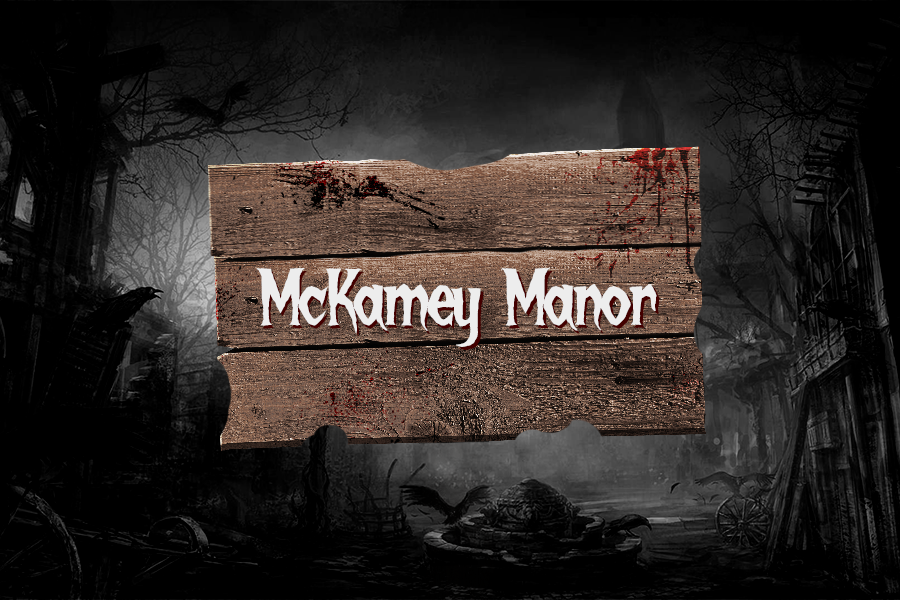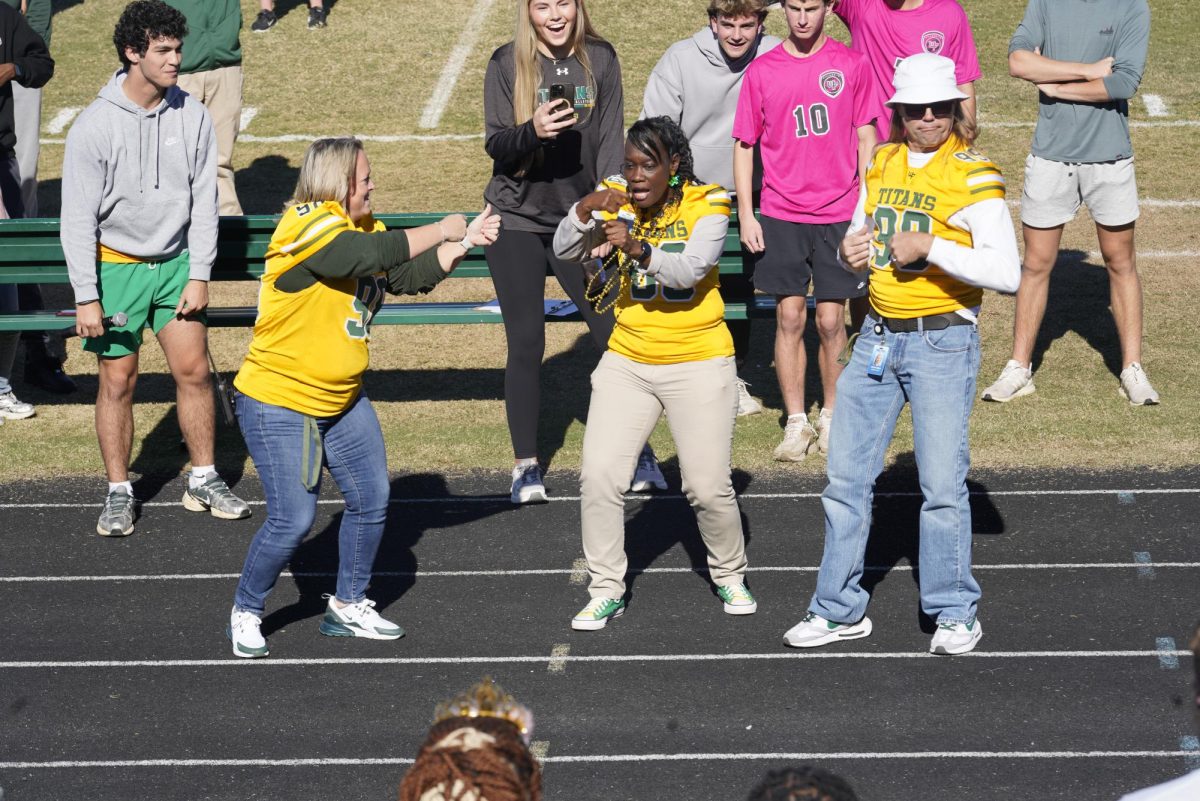Living in a world that hates your hair is exhausting
Senior Kellie Pearson stands proudly with her natural hair, and poses with a smile.
May 15, 2021
Of all the years I’ve been on this earth, my hair has been a large, integral part of my life. From as early as I can remember, around age two, I’ve always had my hair done. I don’t mean “done” as in I went to the salon and had it done by a professional, I mean “done” as in styled in some type of way, shape or form that was deemed “acceptable.” “Acceptable” to whom? I wasn’t sure. I didn’t know at the time. As I got older, I just assumed my hair needed to look acceptable for my grandma, my cousins, my aunts and all my other female relatives- it needed to look like my mom was doing a good job of managing my hair. The question as to why my hair needed to be managed in the first place didn’t occur to me until a couple of years later, around the time I started middle school.
I wanted to be able to actually style my hair, which meant getting my hair wet. When my hair isn’t natural, I don’t get it wet at all. I wash my hair every other week, then restore it back to its original state, flat ironed and straightened. You may read this and think “Ew, she doesn’t wash her hair enough.” But I guarantee, if you ask any other black girl who does not wear her hair natural, she’ll say the same thing, or at least something similar to it.
It wasn’t until I decided to start wearing my hair naturally that I realized just how expensive it was. My shampoo cost $15 for a four-ounce bottle. Black hair requires different products if you want it to look good. Wearing my hair naturally was extremely time-consuming. I spent at least half an hour on my hair every morning just to get it ready for the day. I had to wake up extra early and wet my hair just so I could do it, which either meant getting in the shower or spraying my entire head with water from a spray bottle.
The point is, it was a lot of work. Don’t get me wrong, my hair looked fantastic, and everybody told me so. But after a couple of weeks, it seemed like my white counterparts treated me differently as if I wasn’t as smart, or I was rebellious. It became a lot of work for nothing so ultimately I did my hair again the way it was before, flat ironed and straightened. Nobody outright said this to me but eventually, it was clear that adults and strangers treated me differently based on how my hair looked. In elevators, people would stand further away from me. At school, teachers who didn’t know me would ask me what I was doing as if I were about to do something wrong. In stores, security or employees would watch me as I went about my business. That’s when I realized why my hair needed to be “acceptable.” That’s when I realized my hair needed to be “managed.” The world treated me differently based on how my hair looked. This whole idea that a black woman’s hair needs to be in a Eurocentric style to be seen as an equal is absurd. It’s the hair that grows out of our heads. White girls get to wear the hair that grows out of their heads without worrying about how the world may treat them. Why can’t black girls have that same luxury?
If I get my hair done professionally, it costs about two to three hours of my time, $100, an extra tip and a half-hour drive to the north side of Winston. So, yes, it is very expensive. But it’s definitely a lot easier than having to wake up early every day and buy products for my hair every two weeks. It’s also a lot nicer to have the world not treat me as if I am incompetent or not serious about my life and my passions. One hundred dollars may be a lot, but it’s a small price to pay to be seen as more of an equal.
In 2019, Gabrielle Union spoke out about injustice and discrimination against black hair. This happened when she was fired from NBC’s “America’s Got Talent” after receiving multiple complaints about her outfits and being told by producers that her hair was “too black” for the show. She decided to take action and has lodged many complaints to NBC, including having a five-hour meeting with the network to discuss the situation. Union is hoping to start a movement about the discrimination against black women in the workplace.
It almost seems unreal that someone as famous and as talented as Gabrielle Union would be blatantly discriminated against on a national television show. But in all honesty, that just goes to show how big the issue really is. The current stigma around black hair affects women all around the world, but especially in America.
The problem with natural hair being stigmatized has been a burgeoning issue for the last few years. The constant outcry from black women being discriminated against in the workplace led to the creation of the CROWN Act in California. The CROWN (Creating a Respectful and open World for Natural Hair) Act prohibits discrimination based on hair style and hair texture. The women who raised awareness and fought to get this discrimination legally recognized were women who refused to be defined by the stereotype. The CROWN Act was passed in 2019, and a few other states have joined in passing the CROWN or similar acts. This helps deter discrimination against natural hair, as employers and institutions will fear lawsuits- lawsuits that now hold more threat because there is a specific law that states that the discrimination is illegal.
While it is significant that more awareness is being brought to natural hair discrimination, we need to do our best to erase it within our youth. Generations of relaxers, perms, and hot combs have predeceased us. If I as a black woman want to see change, then I need to promote that change within the youth around me. Black women need to promote this change within their children, little sisters, cousins and students. So often young black girls have their hair always done by someone else. So when we do their hair we need to show them how we’re doing it, teach them the importance of loving their hair and how to care for it. Whenever I see a young black girl with natural hair out in public, I make it a point to tell her that I think her hair is beautiful. All this work towards change means nothing if the next generation doesn’t know how to continue it.
While I’ve been working within myself to confidently wear my natural hair more often, it’s the major way I see myself currently doing my part in resisting the stereotypes. If I achieve greatness while displaying my natural hair, it helps to reduce the stigma around it. This small, silent form of protest black women and I have participated in has led us closer to a collective victory; a victory that proves that it’s not “just hair”: normalization. When black hair is normalized, we are seen less as threats out in the public. When black hair is normalized, our hair care products can start to be lowered in price. When black hair is normalized, teachers and professors take us more seriously. When black hair is normalized we are seen more as equals in the workplace. As more non-black people begin to see our natural hair, the stereotype associated with it, that we’re “unfocused” or “unprofessional” or “dangerous” begins to melt away. We as a society might not be entirely accepting of natural black hair yet, but I hope to one day live in a world where I can wear my hair naturally and not worry about how different the world will treat me. As for now, I’ll continue to do my part and encourage others, especially young black girls, to wear their natural hair proudly.


